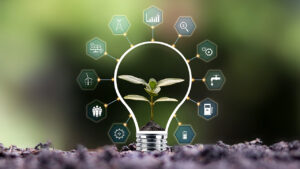Technology has always been a driving force shaping our world and its future. Emerging technologies represent the forefront of human ingenuity and resourcefulness, bringing new and innovative solutions to current challenges. From automating complex processes to redefining how we interact with the planet and each other, these advancements are paving the way for a more connected, efficient, and sustainable future. This article explores some of the most promising emerging technologies that hold the potential to revolutionize the way we live, work, and think.
Artificial Intelligence and Machine Learning
Artificial Intelligence (AI) and Machine Learning (ML) have taken center stage as some of the most game-changing technologies of this era. AI refers to the simulation of human intelligence within machines, enabling them to perform tasks such as decision-making, problem-solving, and speech recognition. ML, as a subset of AI, involves algorithms that allow machines to learn from data and improve their performance over time without explicit programming.
These technologies are already visible in numerous sectors. For instance, personalized recommendations on streaming platforms, such as Netflix, and self-driving cars by companies like Tesla are powered by AI and ML. Furthermore, industries like healthcare are benefitting significantly. AI-powered tools can analyze medical records to predict diseases and develop tailored treatment plans, effectively transforming diagnostics and patient care. The importance of AI and ML cannot be overstated, as they form the backbone for countless advancements across other emerging technologies.
Blockchain Technology
When blockchain first appeared on the scene, it was primarily associated with cryptocurrencies like Bitcoin. However, as the technology has developed, its potential and applications have expanded far beyond digital currency. At its core, blockchain is a secure and decentralized ledger system that records transactions across multiple computers, ensuring transparency and immutability.
Blockchain’s applicability now extends to industries such as finance, supply chain, and healthcare. Financial institutions are using it for secure and real-time cross-border payments, reducing reliance on intermediaries. Similarly, supply chain companies are harnessing blockchain to provide product traceability, mitigating issues like fraud and counterfeit goods. For healthcare, storing patient records on a blockchain ensures both security and accessibility. Blockchain is gaining traction as a game-changing technology because of its potential to upend established systems and foster greater trust.
Internet of Things (IoT)
The Internet of Things (IoT) is making the world more interconnected than ever before by embedding everyday devices with sensors and connectivity. This network of physical devices allows data to be exchanged and processed, creating a smarter and more automated environment.
Smart home devices, like thermostats from Nest or virtual assistants like Amazon Alexa, have now become part of daily life. IoT also finds significant applications in industries like agriculture and urban planning. Farmers use IoT-enabled devices to monitor soil quality and irrigation systems remotely, improving crop yields. Similarly, IoT-based smart city solutions help manage resources more efficiently by optimizing energy consumption, improving traffic systems, and enhancing public safety. We expect IoT’s influence to grow, as it promises to seamlessly bridge humans and technology.
Biotechnology and Genetic Engineering
Biotechnology and genetic engineering represent significant advancements in the life sciences, offering solutions to some of humanity’s most pressing challenges, from food security to healthcare. Using biological processes to develop products and technologies, biotechnology has revolutionized the way we approach medicine, agriculture, and even environmental preservation.
Genetic engineering, including techniques like CRISPR-Cas9, is enabling scientists to modify DNA with astounding precision. This ability has opened up possibilities in treating genetic disorders, developing disease-resistant crops, and even combating climate change by engineering plants to absorb more carbon dioxide. Furthermore, advancements in stem cell research and regenerative medicine are expanding our understanding and treatment of diseases. The blend of biology and technology through these advancements holds immense promise in improving the quality of life for generations to come.
Renewable Energy Technologies
The global shift toward sustainability has spotlighted the importance of renewable energy technologies in combating climate change. These innovations are designed to harness natural resources like sunlight, wind, and water to generate energy without depleting the planet’s finite reserves.
Solar power is one of the most rapidly advancing areas within renewable energy. Solar panels are becoming more efficient while their costs decrease, making renewable energy more accessible to both households and businesses. Wind turbines, particularly offshore installations, are also producing record levels of electricity in several parts of the world. Additionally, advancements in battery storage technologies, like Tesla’s Powerwall, are ensuring that renewable energy is available even when the sun isn’t shining or the wind isn’t blowing. Renewable energy technologies promise to redefine how we fuel our planet, steering us closer to a greener and more sustainable future.
FAQs
1. What are emerging technologies?
Emerging technologies are innovative advancements that hold the potential to transform industries, solve complex challenges, and redefine how we live and work. These technologies are often in their early developmental or adoption stages.
2. Why are emerging technologies important?
Emerging technologies drive innovation and economic growth. They address societal challenges, improve efficiency, and unlock new opportunities across various sectors, from healthcare to energy.
3. Are emerging technologies accessible for small businesses?
Many emerging technologies, such as IoT and AI-powered tools, have become increasingly accessible for businesses of all sizes thanks to cost reductions and user-friendly platforms.
4. What role does AI play in other emerging technologies?
AI serves as a foundational element for many emerging technologies, such as IoT, biotechnology, and even blockchain, by enabling smarter data analysis, decision-making, and automation.
5. How can individuals prepare for the rise of emerging technologies?
Staying informed, updating skills through courses, and learning how technologies like AI and IoT function can help individuals adapt and thrive in a rapidly changing technological landscape.




